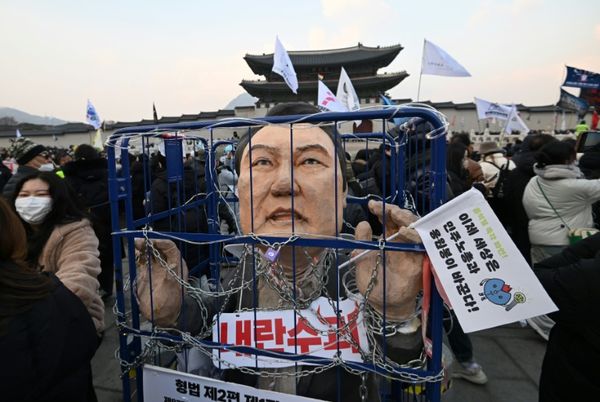
Cairo (AFP) - Egypt's interior ministry said Thursday it has footage of jailed dissident Alaa Abdel Fattah that "disproves" a report from his family that he has been on hunger strike for 10 weeks.
The footage, recorded inside his cell, "was delivered to the public prosecution", the ministry said in a statement.
The 40-year-old activist and blogger, long-dubbed an icon of Egypt's 2011 revolution, is on "day 69 of hunger strike", his sister Mona Seif said Thursday.
Abdel Fattah's lawyer Khaled Ali, who says he was denied a visit with his client Thursday despite having a permit from the prosecution, demanded an investigation, "to be allowed to see the videos and respond to them", and an independent medical examination "to prove whether or not he is on hunger strike".
The activist gained UK citizenship in April from inside prison, through his British-born mother Laila Soueif.His family has since been pushing for a consular visit from the UK embassy.
In response to the statement, his sister tweeted that the ministry should "share this footage with his family, lawyers and Alaa", allow a consular visit and investigate reports the family had filed about Abdel Fattah's condition.
The activist has spent the better part of the past decade behind bars, mainly in the notorious Tora prison, where he launched his hunger strike in early April to protest prison conditions, his family said.
On May 18, following a request from the state-affiliated National Council for Human Rights, the interior ministry transferred Abdel Fattah to the newly built Wadi al-Natroun prison complex, where he was allowed a mattress and books "for the first time in two years", his family said.
The move raised hopes that authorities were preparing to allow a consular visit, but the UK embassy has yet to release a statement.
Abdel Fattah is currently serving a five-year sentence for "broadcasting false news", an accusation frequently levelled against dissidents in Egypt.
When he was convicted in December, he had already been in pre-trial detention for two years.
Rights groups say Egypt is holding some 60,000 political prisoners, many facing brutal conditions.







